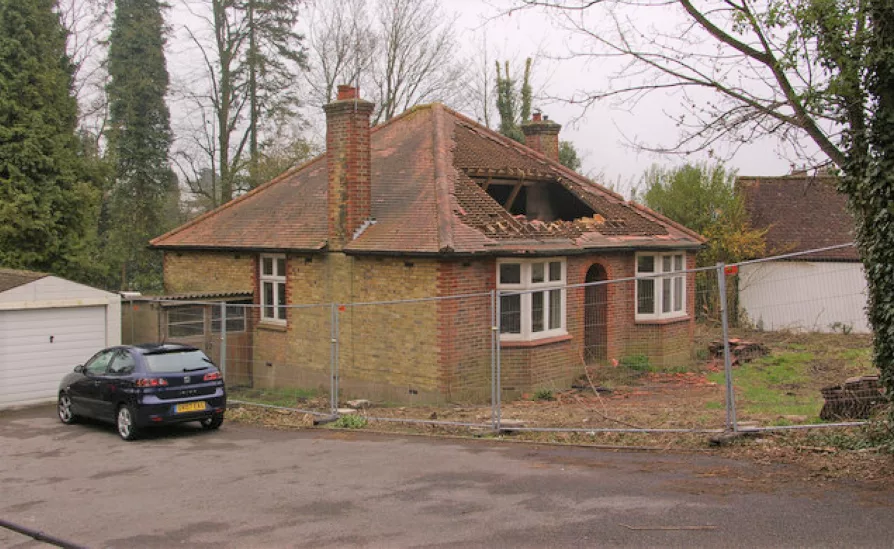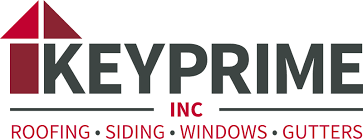Crime Blotter
Twin Cities Imposters, Posing as Contractor Reps, Vandalize Homes and Swindle Customers
Minneapolis-St. Paul, Minn., community outraged over the scam, and puts local concern’s reputation at put risk

At least three Minneapolis-area homeowners were approached by a fake roofing crew claiming association with Golden Valley, Minn.-based KeyPrime Roofing, trying to scam homeowners of thousands of dollars in unneeded work; unfortunately, the damage caused by the thieves is all too real.
— Photo courtesy of Wikimedia
Reports of rogue roofers claiming to represent a well-known local Minneapolis roofing concern have been swindling homeowners for nonexistent roof repairs, that is, until the ne’er-do-wells intentionally vandalize the homes to justify their ‘work.’
News of the scams coming out of the Twin Cities, as first reported by local NCB affiliate KARE, led the broadcast with a warning by the Better Business Bureau that “…it’s that time of year when [homeowners] need to watch out for scammers offering roof inspections or repairs, especially after storms.”
As the frequency of storms increases yearly, it’s becoming increasingly difficult to find a month or two where incidents like these, primed by hail, wind, and other Mother Nature-inspired events, aren’t “that time of year.”
Reporter Kent Erdalh of NBC’s Channel 11 showcased the alarming story of James Graham, a 20-year resident of Robbinsdale, a bedroom community 10 miles northwest of Minneapolis. He said a group of men wreaked havoc on his roof within a few days.
But one scam in the Twin Cities has been especially damaging for several homeowners and one legitimate local business.
"I'm just angry at myself," Graham told KARE. "If you told me two weeks ago that this would happen, I would have laughed in your face; how wrong I would have been."
As reported, Graham says the scam began when a man “…with a distinct Irish accent” approached him in his driveway with a “reasonable offer” to fix one loose shingle by his upstairs window.
"With a loose shingle, your roof becomes a little vulnerable," he said. "So, I thought for $200; please take care of it."
That ostensibly loose shingle gave the man and his band of vandals entrée into Graham’s home, and that is all it took. Graham told reporters things escalated quickly, and the estimate soon shot through the roof.
"I came home from getting my groceries to find six Irishmen on the roof," Graham said. "I was gob-smacked, to be quite honest."
He says the crew had already started deconstructing part of his roof, removing not only shingles but the roof deck, too, even reportedly showing him decking the claim was rotting.
"After a few minutes, they came in and said the roof was steep,” Graham said. “Therefore, they needed to rent scaffolding and said they would need $8,500 ‘in cash’ from me as a deposit."
It’s not unreasonable for someone to feel like a deer in the headlights when “professionals” tell you something and, to that end, Graham said he went to the bank to withdraw the cash; fortunately for the homeowner, something ‘kicked in,’ and he called his son ahead of giving the scammers the cash.
"He pointed out that I was an idiot for pulling out the cash," Graham said.
The brief conversation with his son prompted Graham to double-check the crew’s credentials with the business they claimed to represent.
"I asked to see a contract, too, and he produced what looked like a homemade copy of something from KeyPrime," Graham said.
Victims Two and Three; Roofing Concern Makes Four

Unfortunately, Lee said the rogue crew also used a fake invoice to hoodwink that homeowner into ponying up nearly $10,000 — cash — as a down payment to cover initial materials and labor. The thieves returned with material and demanded an additional $30,000 — cash — to finish the job.
"She said she didn't have that kind of money, that she'd need to go apply for a loan," Lee said. "On her way to the bank, she called her insurance, and they immediately called and asked us what the heck was going on out there."
Lee says everything about the woman’s story matched Graham’s, the first customer victimized by the felonious crew, from fake invoices to the Irish brogues. KeyPrime said it is now working with local and state law enforcement as multiple investigations have been launched.
"Our main goal with KeyPrime is to [ensure] the community isn't affected anymore," Lee noted. "And, obviously, we don't want [our] name being represented that way; [The scammers] are maximizing the damages to make it look like they had a big problem up there, which makes the homeowner pull out large amounts of cash."
And even when a homeowner has the good fortune of recognizing a scam, often the damage has been done.
"I should have known better,” Graham said. “[T]here’s no two ways about it; I don't want anybody else to have to go through this. Just don't be as stupid as I was."
Following Channel 11’s initial report of the scams, KeyPrime Roofing said it had received a third call about the same scam in northeast Minneapolis. A crew of men with Irish accents had just approached the woman who called the company. She reportedly said the fake crew handed out the same false documents and offered to “clean her gutter.” She told the company that she did not let them on her roof. Instead, she called the police and contacted the company directly.
These incidents are all too common, which is of great consternation to roofing contractors nationwide. A few general rules contractors repeatedly emphasize to homeowners include:
Do not pay in cash;
- Request credentials ahead of agreeing to any type of work, including a state-issued license;
- Research the company to verify the information;
- Homeowners should call their insurance company since insurers have as much of a vested interest in verifying the damage, and;
- Always sign a contract ahead of allowing work to commence. In Minnesota, state law mandates a three-day “cooling off” period before the contract is binding.
Looking for a reprint of this article?
From high-res PDFs to custom plaques, order your copy today!






